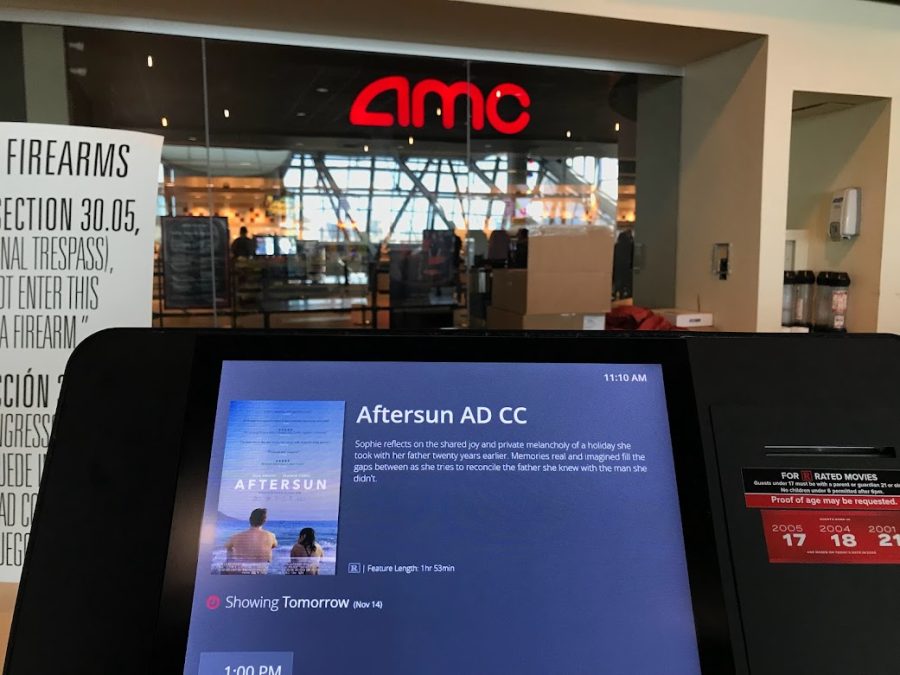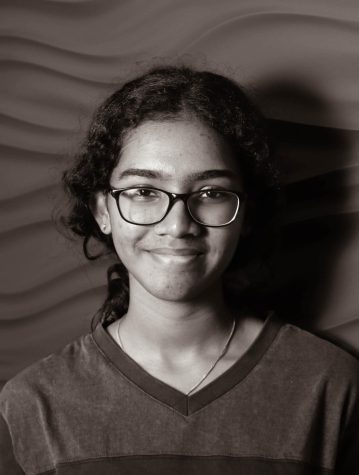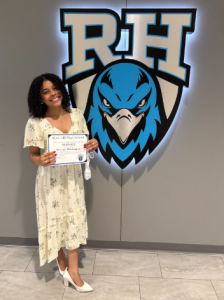‘Once you leave where you grew up…’: Aftersun handycams displacement amid summer scenery
The portal for buying tickets to “Aftersun” directed by Charlotte Wells is pictured at Stonebriar Centre’s AMC Dine-in. Staff writer Nanditha Nagavishnu reviews the movie here.
December 10, 2022
Director Charlotte Well’s film “Aftersun,” released in theaters on Oct. 21, follows a dad and daughter on some Mediterranean vacation over a 1990s summer. Irish actor Paul Mescal plays Calum, father of 11-year-old Sophie played by Frankie Corio.
The actors have heavy Scottish accents and the screening didn’t include subtitles, which sometimes made it hard to follow when they spoke. But in a way, the dialogue is only secondary. “Aftersun” makes exhaustive use of a film’s visual capacity, crowded with reflections–on mirrors, on swimming pool waters, on a glass door set behind a recording handycam projecting on the television set.
Reflections show up even without conductive surfaces. In one scene, the two step off their bus after it stops at high altitude ground overlooking the hilly Mediterranean terrain. Sophie is imitating Calum as he stretches and waddles with legs stiff from rest. When they stand looking off the cliff, amid a coastal breeze, Calum uses the opportunity to do some Tai Chi postures. “I’m still copying you,” Sophie says, and he responds “I know.” One senses that he is grasping for moments like this, where Sophie still looks up to him and he is easily fulfilled.
Sophie’s presence keeps Calum sane. Something is troubling Calum, but we’re not let in on it. On the one night Calum is left alone after Sophie stays back for the resort’s community events, he loses himself. There are shots of him walking into the dark ocean after ugly crying on the hotel bed, then Sophie finds him back in the room, unclothed and asleep.
“Aftersun” doesn’t give much explanation. There is no talk about their individual lives outside the vacuum of vacation. We hear one-sided conversations with Sophie’s mother in a phone booth. We assume Sophie lives with her primarily, but we’re told nothing for certain about their custody arrangements or living circumstances. We can assume that Calum is struggling financially and romantically, but such things aren’t directly referenced.
Calum doesn’t live in his homeland of Scotland anymore. We don’t know where he settled down or when and why he moved. Sophie asks him why he doesn’t move back, and he says, “There’s this feeling, once you leave where you grew up, that you don’t totally belong there again.” In choosing this vague, blanket response, he lays down the movie’s resolve to be as unspecific as possible, but it makes it easy to build empathy with the characters.
Though the merits of the film lie in its plotless and montage structure, it can get boring if you’re not in the mood for it. Some scenes seem pointless and stretched, and one may wonder what the director wanted them to stand for, if it’s meant to be read into or left alone. But it’s a film to try out regardless.








